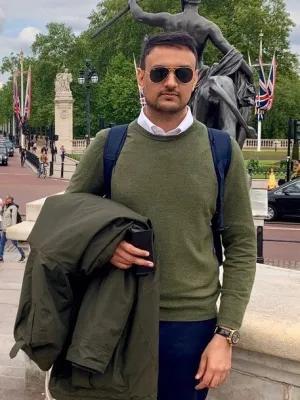The syllabus and rigour in all the core courses matched well with other top MSc degrees and the first year of US Economics PhDs. It also gave the option to study real analysis, topology with Microeconomics 1 and Numerical Methods in an intensive summer bootcamp giving a proper mathematical/computation background for a PhD. I also had a broad set of interests spanning Macro Theory, Political Economy, Bayesian Econometrics and Economic History which overlapped well with option courses available and the sheer number of faculty available in the SGPE for dissertation supervision.
What did you enjoy most about your time here?
It has been a very eventful year. Some of the more enjoyable were some of the lectures of Prof. John Moore, Prof. Sevi Rodriguez Mora, Prof. Gary Koop and especially Prof. Andrew Clausen’s General Equilibrium Theory lecture at Adam Smith’s grave.
I also worked as a Resident Assistant at the University accommodation. So, we had to organise a huge number of social events throughout the year which really allowed me to enjoy the diversity in the university. Lastly, the city has loads to offer with beautiful architecture, art, music, pubs, book shops, cafes and obviously the proximity to picturesque highlands. In summer the city completely transforms with the Fringe, Book Festival, and a number of other festivals, and you would only wish to have more time to enjoy some shows.
What are your plans for the future?
I have a couple of job offers including an Assistant Economist positions in the Government Economic Service, UK and a Data Analytics role at Royal Bank of Scotland. However, I plan to enrol in a PhD next year so I'm still deciding between all the options and looking to gain some research experience.
Update: Raman is now a PhD student in Economics at the University of Chicago.
If you could offer any advice to new or current students, what would it be?
It is an intensive programme and you’d never run out of assignments to complete or new things to learn. I would suggest not to rush through things and listen to whatever advice you get from the faculty and the tutors. Also, there will be a lot of intellectual discourse around you outside the class, in the tutorials, seminars, talks and events so try to engage as much as possible. Focus on your mental health, go out with friends often and enjoy Edinburgh.


